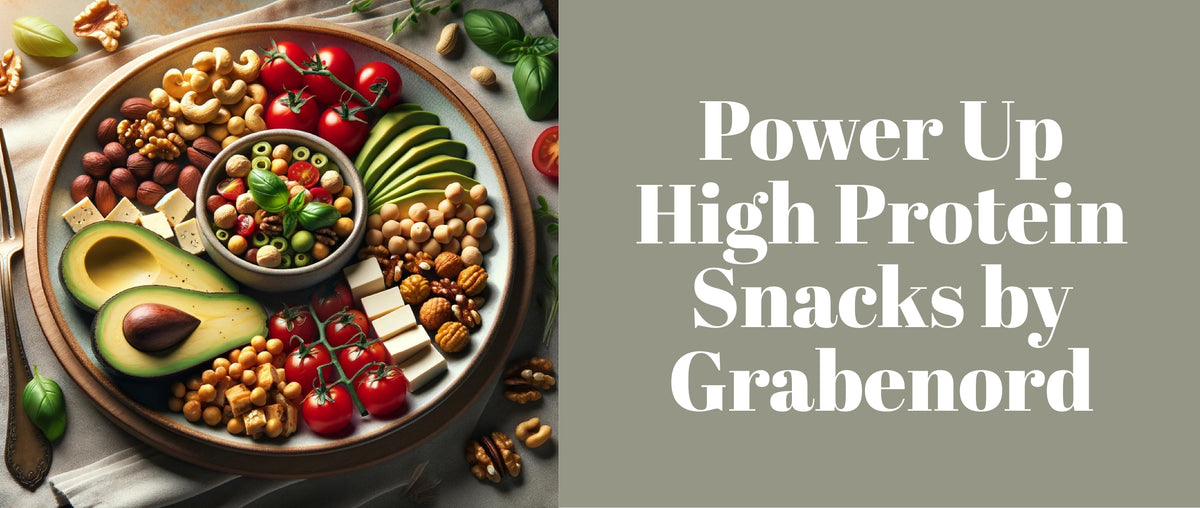Exercise Routines for People of All Ages
Exercise is essential for maintaining overall health and well-being at every stage of life. It not only helps in improving physical fitness but also boosts mental health, enhances mood, and increases longevity. Whether you are a child, teenager, adult, or senior, there are exercise routines designed to fit your needs and abilities. This guide will explore exercise routines for people of all ages, focusing on age-appropriate exercises and tips to make your fitness journey enjoyable and sustainable.
Key Takeaways
- Exercise is crucial for maintaining health at every age.
- Tailoring routines to different age groups maximizes benefits and reduces risks.
- Emphasizing safety and modifications ensures exercises are suitable for everyone.
Exercise Guidelines by Age Group
Children (Ages 5-12)
Engaging children in physical activities is vital for their development. Exercise helps children develop motor skills, build strong bones, and maintain a healthy weight. Here are some recommended activities for children:
- Play Based Exercises: Activities like tag, hopscotch, and jumping rope are fun ways to encourage movement.
- Team Sports: Soccer, basketball, and other team sports foster teamwork and improve coordination.
- Creative Movements: Dance, gymnastics, and martial arts stimulate creativity and improve flexibility.
Benefits
- Develops motor skills and coordination.
- Promotes healthy growth and development.
- Encourages social interaction and teamwork.
Safety Tips
- Supervision: Ensure children are supervised during activities to prevent injuries.
- Equipment: Use appropriate and well-fitted gear for safety.
- Variety: Encourage a range of activities to prevent overuse injuries and keep children engaged.
Healthy Snacks for Kids are crucial to fuel their energy levels during exercise. Snacks like cashew butter on whole-grain bread or high protein snacks can be both nutritious and delicious.

Teenagers (Ages 13-19)
Teenagers experience rapid growth and hormonal changes, making exercise vital for maintaining physical and mental health. Exercise routines for teens should focus on building strength, endurance, and flexibility. Here are some recommended activities:
- Strength Training: Bodyweight exercises like push-ups, squats, and planks build strength without the need for weights.
- Cardiovascular Activities: Running, cycling, and swimming improve heart health and endurance.
- Flexibility Exercises: Yoga and stretching enhance flexibility and reduce stress.
Benefits
- Supports physical and mental well-being.
- Builds muscle strength and endurance.
- Enhances self-esteem and body image.
Safety Tips
- Form and Technique: Emphasize proper form to prevent injuries.
- Balanced Routine: Combine strength, cardio, and flexibility exercises for a well-rounded routine.
- Rest and Recovery: Encourage adequate rest and recovery to support growth and prevent burnout.
A healthy diet is essential for teenagers to support their active lifestyle. Incorporating high protein vegan breakfast options, such as smoothies with plant-based protein like kombucha or Oat Milk, can provide the necessary nutrients for growing teens.
Adults (Ages 20-64)
For adults, maintaining a balanced exercise routine is essential for managing stress, preventing chronic diseases, and promoting overall well-being. This age group should focus on a mix of strength training, cardiovascular workouts, and flexibility exercises to maintain optimal health and fitness. Here are some recommended activities:
- Strength Training: Incorporate exercises such as weightlifting, resistance bands, or bodyweight exercises like squats, push-ups, and lunges. Strength training helps build muscle mass, improve metabolism, and enhance bone density.
- Cardiovascular Workouts: Engage in aerobic exercises like running, cycling, swimming, or brisk walking. These activities improve cardiovascular health, increase stamina, and help maintain a healthy weight.
- Flexibility Exercises: Include stretching, yoga, or Pilates in your routine to enhance flexibility, balance, and mental well-being.
Benefits
- Physical Health: Regular exercise reduces the risk of chronic diseases such as diabetes, heart disease, and hypertension.
- Mental Health: Exercise is known to alleviate symptoms of anxiety and depression, improve mood, and boost cognitive function.
- Longevity: Maintaining an active lifestyle can increase lifespan and improve the quality of life.
Safety Tips
- Warm-Up and Cool-Down: Always start with a 5-10 minute warm-up to prepare your body and end with a cool-down to prevent injuries and aid recovery.
- Listen to Your Body: Pay attention to any signs of discomfort or pain and modify exercises accordingly to prevent overuse injuries.
- Variety and Progression: Incorporate a variety of exercises and gradually increase intensity to avoid plateaus and stay motivated.
Including Vegan Cheese and plant based foods in your diet can provide essential nutrients to support muscle recovery and overall health. Try adding parmesan cheese to salads or Vegan Bodybuilding Diet recipes for a protein boost.
Seniors (Ages 65+)
As people age, maintaining an active lifestyle becomes increasingly important for preserving mobility, independence, and mental well-being. Seniors should focus on exercises that improve strength, balance, and flexibility to enhance their quality of life. Here are some recommended activities:
- Low-Impact Aerobic Exercises: Activities such as walking, swimming, or water aerobics are gentle on the joints and help maintain cardiovascular health.
- Balance and Coordination Exercises: Tai chi, yoga, and gentle stretching exercises can improve balance and prevent falls, a common concern for seniors.
- Gentle Strength Training: Using resistance bands or light weights can help maintain muscle mass and bone density, reducing the risk of osteoporosis.
Benefits
- Improved Mobility: Regular exercise enhances joint flexibility and muscle strength, making daily tasks easier.
- Enhanced Mental Health: Physical activity can boost mood, reduce the risk of cognitive decline, and promote social interaction.
- Fall Prevention: Exercises that improve balance and coordination can significantly reduce the risk of falls and related injuries.
Safety Tips
- Consult with Healthcare Providers: Before starting a new exercise routine, seniors should consult their healthcare provider to ensure the activities are safe and suitable for their individual health conditions.
- Adapt Exercises to Abilities: Modify exercises to fit personal abilities and limitations, and use assistive devices if necessary.
- Stay Hydrated and Nourished: Proper hydration and nutrition are crucial for maintaining energy levels and recovery.
For seniors, incorporating Oat Milk and cashew butter into meals can provide calcium and healthy fats, supporting bone health and energy levels. Including heart healthy diet choices can further enhance overall wellness.
Safety and Injury Prevention
Ensuring safety during exercise is crucial for preventing injuries and maximizing the benefits of physical activity. Here are some essential tips for staying safe while working out:
Warm-Up and Cool-Down
- Warm-Up: Begin with light aerobic activity like walking or cycling to gradually increase heart rate and prepare muscles for more intense exercise. Dynamic stretching can also be beneficial to increase mobility and reduce stiffness.
- Cool-Down: End each workout with a cool-down period that includes static stretching to relax muscles and gradually lower heart rate, aiding in recovery and flexibility.
Proper Technique
- Focus on Form: Correct form and technique are essential to prevent injuries and ensure the effectiveness of exercises. Consider working with a certified trainer to learn proper techniques, especially for strength training exercises.
- Controlled Movements: Avoid jerky or fast movements that can lead to strains or injuries. Focus on slow, controlled movements to engage the muscles fully.
- Use Appropriate Equipment: Ensure that any equipment used is well-maintained and suitable for your fitness level and the exercises being performed.
Listening to Your Body
- Recognize Warning Signs: Pay attention to signs of fatigue, pain, or discomfort. It's important to differentiate between normal muscle soreness and potential injury. Rest and modify exercises as needed.
- Avoid Overtraining: Give your body time to rest and recover between workouts to prevent burnout and overuse injuries. Incorporating rest days into your routine is essential for long-term success.
Incorporating High Protein Vegan Food like vegan butter and Unsalted Butter can support muscle recovery and provide the energy needed for effective workouts. Try adding low fat mayonnaise to post-workout snacks for a nutritious boost.
The Role of Nutrition in Exercise
A balanced diet plays a significant role in supporting exercise routines and enhancing overall health. Proper nutrition provides the energy and nutrients needed for optimal performance and recovery.
Balanced Diet
- Macronutrients: Include a balanced intake of carbohydrates, proteins, and fats to support energy levels and muscle growth. Carbohydrates provide immediate energy, while proteins aid in muscle repair and growth.
- Micronutrients: Ensure an adequate intake of vitamins and minerals to support metabolic processes, bone health, and immune function.
- Hydration: Staying hydrated is essential for maintaining energy levels and preventing dehydration, which can impair performance and recovery.
Pre-Workout Nutrition
- Fuel Your Workout: Consuming a small meal or snack rich in carbohydrates and moderate in protein about 1-2 hours before exercise can provide the energy needed for optimal performance. Options like high protein vegan breakfast smoothies or oatmeal with fruits are excellent choices.
- Healthy Drinks: Include hydrating beverages like water or kombucha before workouts to maintain hydration and support digestion.
Post-Workout Nutrition
- Recovery Nutrition: After exercise, focus on replenishing energy stores and repairing muscles with a combination of carbohydrates and proteins. Options like a smoothie with oat milk and Plant Based Protein powder or a salad topped with cheddar cheese and nuts can aid in recovery.
- Timing Matters: Consuming a post-workout meal or snack within 30-60 minutes after exercise can enhance muscle recovery and glycogen replenishment.
Incorporating cholesterol free foods and Healthy Snacks for Kids into your diet can further enhance overall health and support an active lifestyle. Including parmesan cheese and high protein snacks can boost protein intake and aid in recovery.
Conclusion
Exercise is a crucial component of a healthy lifestyle for people of all ages. It not only improves physical fitness but also enhances mental well-being, increases longevity, and enriches quality of life. By understanding the unique exercise needs of different age groups and incorporating safe and effective routines, individuals can enjoy the numerous benefits of staying active. Remember to adapt exercises to your abilities, listen to your body, and prioritize safety to make your fitness journey enjoyable and sustainable.
Incorporating a balanced diet with plant based foods and cholesterol free foods can further support your exercise goals and overall health. By including options like vegan cheese, unsalted butter, and healthy drinks like kombucha, you can ensure that your body receives the nutrients it needs to thrive.
Staying active at any age is achievable with the right approach. Whether you're engaging children in fun activities, helping teenagers build strength and endurance, supporting adults in maintaining fitness, or encouraging seniors to enhance mobility and balance, exercise routines can be tailored to fit every stage of life. Embrace the journey to a healthier, more active lifestyle and enjoy the countless benefits it brings.
Do you enjoy vegan food? We have a list of vegan restaurants in India to help you find delicious options in your area!










